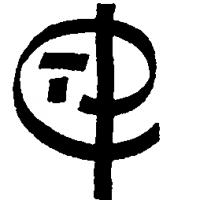Mesaĝoj: 10
Lingvo: English
wsprague (Montri la profilon) 2006-septembro-03 15:59:16
For instance, how does a new word get addded to the lexicon, possibly while deciding that an alternative will be officially mal-recommended?
Or, as a more grandiose example, what if language users want to develop and add a system of interjections (see my other post...) -- is there a process for something like that?
If anybody is familiar with the development of the open source computer language Python, they have a very interesting system for concensus additions and changes to the language (www.python.org/dev/peps/).
I am not proposing any changes (I have to learn the language first!), I am just curious. I think it is especially interesting as standardization is so important to an auxillary language.
(And the NEXT post will be bilingual...)
awake (Montri la profilon) 2006-septembro-05 17:47:52
For example, some feel that having an explicitly female suffix, -ino is inherently sexist. So some people try to eliminate its usage. Because of these arguments, the -ino suffix is probably used less than it was a few decades ago...though it's still used in some words or when one wants to explicitly mark something or someone as female.
Another example is the proposed prepozition na. In esperanto, one adds an -n to mark something as a direct object (or sometimes an -on in the case of proper names). Some feel this is awkward for some proper names, so they have proposed and started using a new preposition, na, to mark things as direct object when putting an -n or -on at the end of the word would be awkward. So far this hasn't really caught on (and has met with much resistance) but it's (as far as I know) fairly new, so maybe in time it will.
But in general, There is a great resistance to massive changes in the language, at least until it becomes vastly more widespread.
Michael
wsprague:Could someone give me a sense of the
process by which the official language is changed/added to?
For instance, how does a new word get addded to the lexicon, possibly while deciding that an alternative will be officially mal-recommended?
Or, as a more grandiose example, what if language users want to develop and add a system of interjections (see my other post...) -- is there a process for something like that?
If anybody is familiar with the development of the open source computer language Python, they have a very interesting system for concensus additions and changes to the language (www.python.org/dev/peps/).
I am not proposing any changes (I have to learn the language first!), I am just curious. I think it is especially interesting as standardization is so important to an auxillary language.
(And the NEXT post will be bilingual...)
T0dd (Montri la profilon) 2006-septembro-08 03:01:18
An excellent recent example of this would be the word "komputilo".
erinja (Montri la profilon) 2006-septembro-08 12:23:31
The Akademio also releases documents giving their official position on various language issues. Anyone interested in language in general (and who has a pretty good reading ability in Esperanto) might enjoy reading these documents; I find them fascinating. These kinds of documents can be found at http://www.akademio-de-esperanto.org/
Kwekubo (Montri la profilon) 2006-oktobro-04 18:30:02
To take your example of dyslexia, jean-luc: both disleksio and mislegemo are fine. I can't think of any everyday circumstance where you couldn't use both of those words. From searching on Google it seems that disleksio is by far more common in practice. But if I was having a conversation and someone didn't understand what I meant by disleksio, I'd just say, "Tio signifas mislegemo". The best of both worlds!
Kwekubo (Montri la profilon) 2006-oktobro-11 17:01:03
As regards your comments about synonyms/new words: Esperanto is mainly used for international communication when people don't share a common language.
Bringing in unnecessary duplicated words (such as your "disleksika" example) would make it less likely that the person you are talking to will understand you, and international communication would become harder; therefore, to make yourself understood you would have to abandon this new word and go back to using good, classical Esperanto.
Your example of disleksio/mislegemo, however, is a little different. As I said before, in everyday conversation you could use either of the two words with roughly the same effect, eg: "Pro mia mislegemo/disleksio mi miskomprenis la vorton."
However, there is a significant difference between "mislegemo" and "disleksio" - "mislegemo" could apply to anyone who tends to misread things for whatever reason, such as a person with poor eyesight. "Disleksio", on the other hand, is a specific type of medical condition, which affects your ability to write as well as to read, and has other effects. So, if I was writing an article in a medical journal about dyslexsia I would certainly use "disleksio", but in everyday use it might depend on the situation.
I take on board your point that having a central authority that decides what words everyone should use would make unifying the language easier, but in practice, as I explained above, the language tends to keep itself in check. People can ask the Academy's advice, though, if they have a question on some uncertain aspect of the language.
Plus, chances are it just wouldn't work. This was one of the things that contributed to the fall of Volapük, the predecessor of Esperanto - its initiator insisted that he retain full control over the language's development, leading to schisms and stagnation. By contrast, Esperanto's future is in the hands of the people who speak it - hence why we have the Fundamento, to give everyone the freedom to make full use of Esperanto in whatever field they're involved in.
piffkin (Montri la profilon) 2021-februaro-11 23:28:07
Problemoj aperas kiam iuj homoj decidas inventi kaj uzi inter se novajn vortojn nekonatajn al Esperantistoj ĝenerale. (Ekzemple, mi vidas de tempo al tempo la vorton “mojosa”. Mi havas neniun ideon kio ĝi signifas!) Esperanto estas lingvo, ne ĉifro. Lingvo ekzistas por komuniki. Lingvo kiu malsukcesas komuniki sencelas.
Metsis (Montri la profilon) 2021-februaro-12 08:34:25
There is a proverb A journey of a thousand miles begins with a single step, which applied here means that every new word is initially not generally known in the wider community. So if we, the community, had stuck only to the Zamenhofian words, the languages would have died a long time ago, since you cannot describe your present day living with a vocabulary from the end of 1800 century.
The word "mojosa" comes from how you speak out the first letters in the expression "moderna juna stilo" and make it an adjective. Effective it means the same as "cool" in English. You may also hear the word "momosa" or "malmoderna maljuna stilo" a.k.a. "onkl(in)a stilo". And of course there exists the word "malaĉa" which can be used to compliment someone who did something clever or cool.
In my opinion it is not some individual words that are worrisome. A lot of Esperantists have fallen into the trap caused by the advertisements that there are only 16 grammar rules or that Esperanto has no exceptions. There are more rules and there are exceptions, probably less than in many other languages, but nevertheless they do exist. This false sense of easiness has led them to invest only a couple of months into learning, after which they think they master the language.
Here are some examples of such erroneous language use.
- Use of participle forms to express continous action as is done in English. "Mi estis sidanta" instead of the simple "Mi sidis".
- Excessive use of passive participles instead of the much simpler oni-passive. "La libro estas legata" instead of the simple "La libron oni legas".
- Excessive piling of pre- and postfixes. A good rule of thumb is max one prefix and two postfixes. If you think you need more, rethink if communicating the idea really needs so many and could something be expressed by addtional words instead of those affixes. For instance the community translation site Tatoeba is full of such incomprehensive combinations.
- Fallacy that you can freely change between parts of speech. For instance turning adjectives or nouns to verbs when it is not clear what such a verb would mean.
Zam_franca (Montri la profilon) 2021-februaro-12 16:01:07
piffkin:The problems arise when certain people decide to invent and start using a new word among themselves which is not generally known in the wider Esperanto community. (For example, I have recently been seeing the word "mojosa" from time to time: I have no idea what it means!) Esperanto is a language, not a code. Language is for communication. If a language fails to communicate, there is no point in it."Mojosa" is widely used now. It isn't used only by a few netizens, associations like TEJO use this word. It is a word that you can find in lernu.net dictionnaries, and as far as I can remember that's how I've learned it.
Problemoj aperas kiam iuj homoj decidas inventi kaj uzi inter se novajn vortojn nekonatajn al Esperantistoj ĝenerale. (Ekzemple, mi vidas de tempo al tempo la vorton “mojosa”. Mi havas neniun ideon kio ĝi signifas!) Esperanto estas lingvo, ne ĉifro. Lingvo ekzistas por komuniki. Lingvo kiu malsukcesas komuniki sencelas.
"Mojosa" estas treege uzata nuntempe. Ĝi ne estas nur uzata de kelkaj retanoj, asocioj kiel TEJO uzas tiun vorton. Estas vorto, kiun vi povas trovi en vortaroj de lernu.net, kaj se mi bone memoras, mi lernis ĝin per lernu.net.
LM59650 (Montri la profilon) 2021-februaro-13 15:38:04






